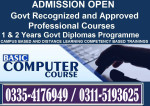

The course will include a balanced mix of statistical quality control concepts and hands-on training in the methods, standards and guidelines currently used for industrial quality control. The course does not assume any prior knowledge except for a prior acquaintance with the basics of probability theory; the discussion will be self-contained and all topics will be developed from the ground up. The course will enable the practicing engineer to gain a solid understanding of statistical quality control methods and enable them not only to analyze and improve existing quality control processes, but also to design and implement new quality control processes in an industrial environment.
History of quality control, modern philosophy of quality control, Design-Measure-Analyze-Improve-Control paradigm, methods for describing variation including histograms, stem-and-leaf plots, box plots, discrete and continuous random variables, probability plots, methods of statistical inference, design of regulatory charts for variable and attribute data including X-bar, R, S, CUSUM, MA and EWMA charts, sensitization rules including Western Electric guidelines, average run length, process characterization and capability analysis, R&R measurement studies, design of experiments with emphasis on factorial design , sampling control, attribute and variable acceptance plans, six-sigma and TQM.
Quality and consistency of products and services is a minimum expectation from customers, and despite a clear need for quality control (QC), there is a distinct lack of certified skills. This free Introduction to Quality Management course covers the various dimensions of 'quality', the seven quality management tools of effective quality management and the basic statistical process control (SPC) approach to managing product and service quality.
Quality assurance and control systems provide an organization with guidance on principles, methods and best practices to strive for excellence in all that they do. Quality management is a leadership practice that has a positive impact on the entire work environment. Effective leaders build a strong foundation that allows them to develop truly committed employees with high morale and better performance, provide employees with opportunities for participation, problem solving and teamwork, and create a level of motivation within each employee.
The course will explain the nature and differences between quality assurance and quality control. Quality Assurance is process oriented and focuses on defect prevention, while Quality Control is product or service oriented and focuses on identifying and correcting defects. Quality assurance usually involves extensive planning of activities to prevent things from going wrong and resulting in a bad product or service. In contrast, there are quality control techniques that maintain standards in operations and achieve improvement.
This course introduces key concepts in the management of service organizations and their operations. The focus is on creating value and customer satisfaction. This course covers in-depth discussions of services, value creation, service strategy, and issues related to service system development. This course also covers topics essential to the efficient and effective operation of a service system, such as capacity and demand management and service quality management.
Objectives
At the end of this seminar, each participant will be able to:
? Define “quality” and key quality concepts and terms
? Know the evolution of quality-related thinking and how it pertains to modern projects
? Differentiate between customer expectations, standards, and requirements
? Write quality-supportive requirements statements
? Design a quality audit to promote project, product, and process improvement
? Know basic quality-related statistical terms and concepts
? Identify the Seven Basic Tools of Quality
? Select quality control tools appropriate for different project types
? Create a Quality Management Plan that links customer expectations, project scope, product requirements, andsuccess metrics.
http://www.icollegete.com/
International College of Technical Education.
Head Office :
Office # 27, Second Floor, Maryam Shadi Hall Plaza
(Airies Plaza), Shamsabad, Murree Road,
Rawalpindi, Pakistan 46000.
Email : info@icollegete.com
Contact : 051-6122937, 0311-5193625, 0092-335-4176949
http://www.icollegete.com/course/quality-control-qa-qc-course-in-islamabad-pakistan/
Name: ICTE
Number: Phone number is not shared.
Don’t forget to tell about SALE BABA when call to seller.
